Make less music if you may but work on your emotional expression: Ali Hamza advises young musicians
The Noori counterpart made an appearance on Junaid Akram's podcast to talk former band's legacy and new music
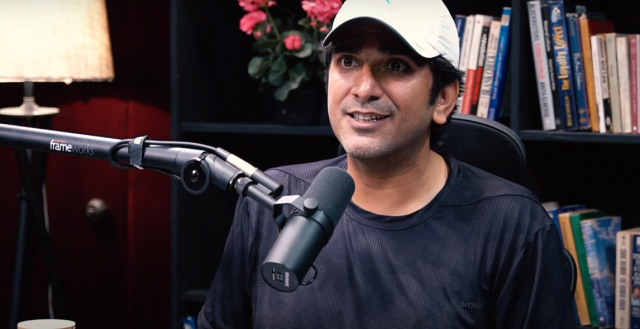
Singer Ali Hamza, who rose to fame with his former band Noori, has been missing in action from the music scene for a while now but rest assured, he may not be producing music but is definitely observing and vibing with the ones being produced now.
The 42-year-old made an appearance on Junaid Akram’s podcast to discuss all things music, the ethos behind Noori, his Coke Studio hit and his thoughts on contemporary artists and their productions these days.
Since Noori is the first word that comes to mind when we hear Hamza or his brother Ali Noor’s name, it was only natural that the host asked him about their ethos behind the band back when they started. “It wasn’t a sudden trial and error thing. We decided intentionally to bring purpose into our music, we wanted Noori to explore a raw but real perspective,” he said. “Ali Noor did a lot of brainstorming. I often say Ali Noor is the mother of Noori while I’m the father. He practically raised the band while I just played my part and used to go on trips.”
The Meray Log crooner further added how their songs were reflective of their internal thought processes and what they’d see around them in people and nature. “Ali Noor was very observant of things, he’d notice how do number people can be while I’ve always been the calm one, and perhaps even the do number one. And the ‘do numberi’ wasn't just being corrupt. It was temperamental issues, can b any kink people have because we were fascinated by it all. These are realities of life. The songs we wrote had some context, some meaning derived from life around us.”
He went on to add how happy people’s reactions would make him. “There are people who would listen to our songs for the vibe, for the persona we established on stage and in our videos. But then were people who would understand what messages we were relaying and that resonated with them. Other singers would get emails saying ‘We just had a breakup and we’re listening to your song’ and we’d get emails reading, ‘We’ve got an exam tomorrow and we’re studying to your songs.’ so that was the difference.”
Hamza also eventually established a deeper bond with his audience since he also managed the band for over five years and even developed a portal for fan interactions until the modern software came that did the job for him.
Moving on to his Coke Studio hit Paar Channa De, Akram asked Hamza about a cover of the same song by the band for BBC Radio. Upon this, Hamza went on to talk about the many covers that exist on the internet of the Punjabi folk song and how the two brothers essentially grew up listening to it during weddings and celebrations at home.
“Paar Chana De has been covered by a lot of people, not just us. There are Qawwals who often sing this and then there was this Naseeruddin Shah film called Zinda Bhaag where Arif Lohar sang it. This song was literally performed at weddings in our family, It was definitely a unique song for us in a way that others didn’t know about it but we grew up listening to our whole family singing it together,” he said.
The current music industry has seen a growing space for budding rappers and contemporary artists to revive the genre again. Upon being asked about his thoughts on rap, Hamza shared that he’s “glad” that the genre is prevalent now. “The lyrics in rap push the listeners to think a certain way. When we started Noori, we had the same thoughts. We wanted our songs to be more than romance. It had to have some perspective, and observations, and be raw in its essence. And rap does that. Its culture is meant to challenge the status quo.”
However, he did have some advice for the young artists churning content regularly. “I don't know how well it will be taken because I haven't released a song in ages but I think the volume, and the frequency with which songs are coming out these days, it’s limiting their expression band. They’re working too regularly on their work and because of that they’re not even getting a chance to break out of the boundaries they’re creating. I’m not talking about their skills, I’m talking about their emotional expression.” He went on to add that the problem is not just limited to Pakistan but is a concern globally.
“My advice to young contemporary artists would be to keep diversity in your music. We were forced at that time to make love songs and patriotic songs and national songs and that would push us. It would challenge us to grow and think in all dimensions. You can have your own style but experimenting and growing your base is also important,” he concluded.

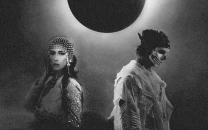
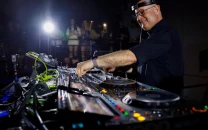


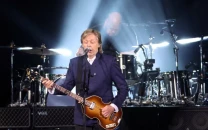
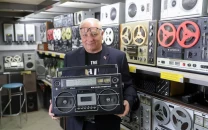












COMMENTS
Comments are moderated and generally will be posted if they are on-topic and not abusive.
For more information, please see our Comments FAQ